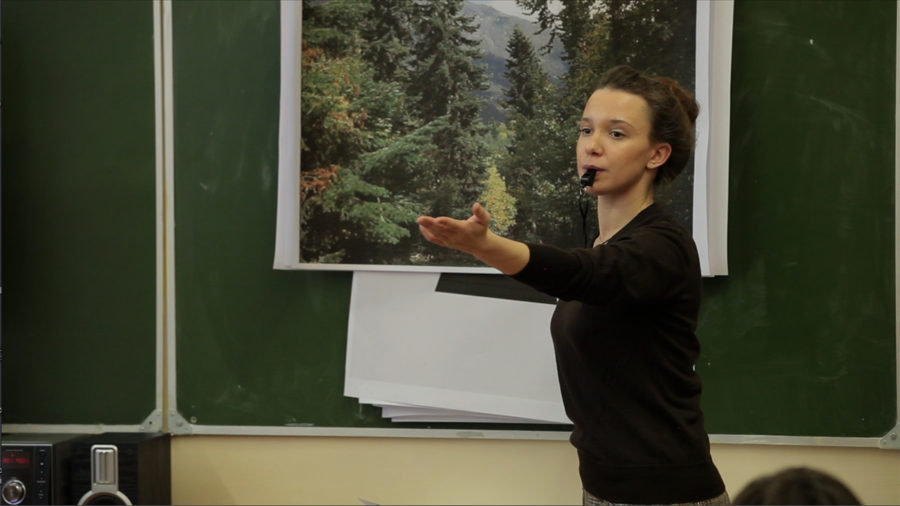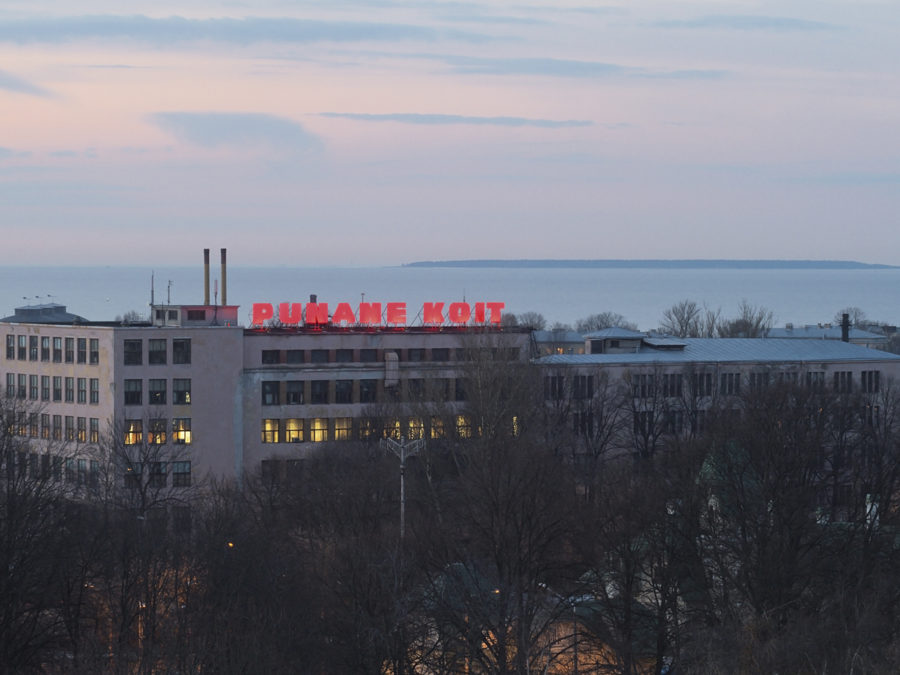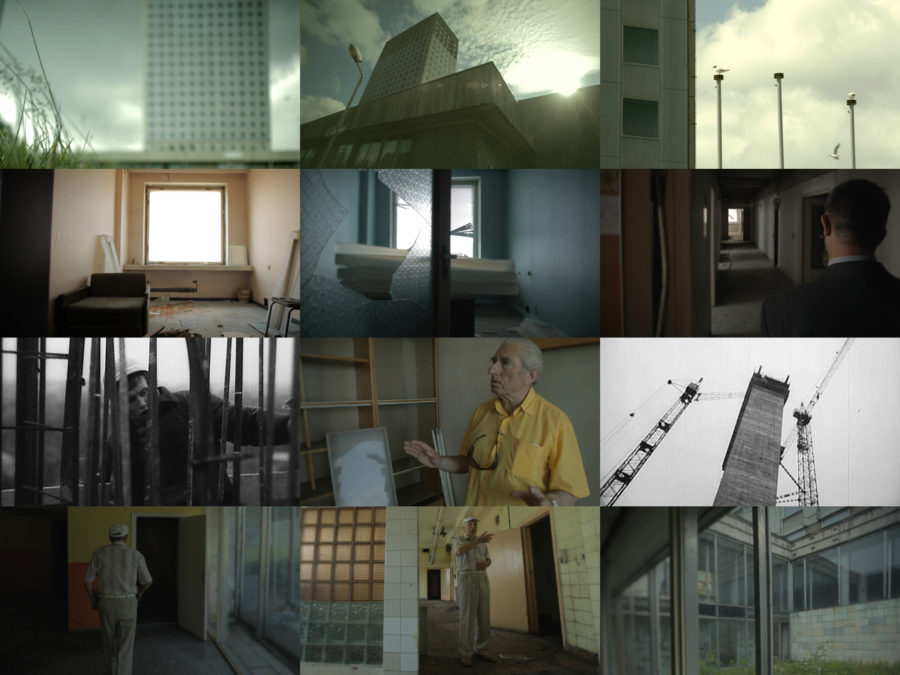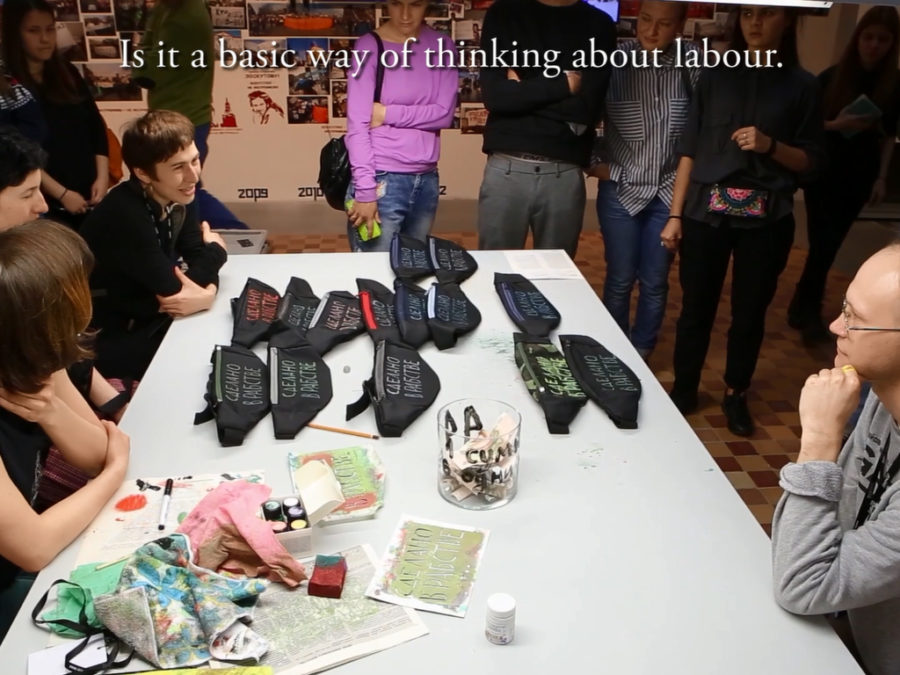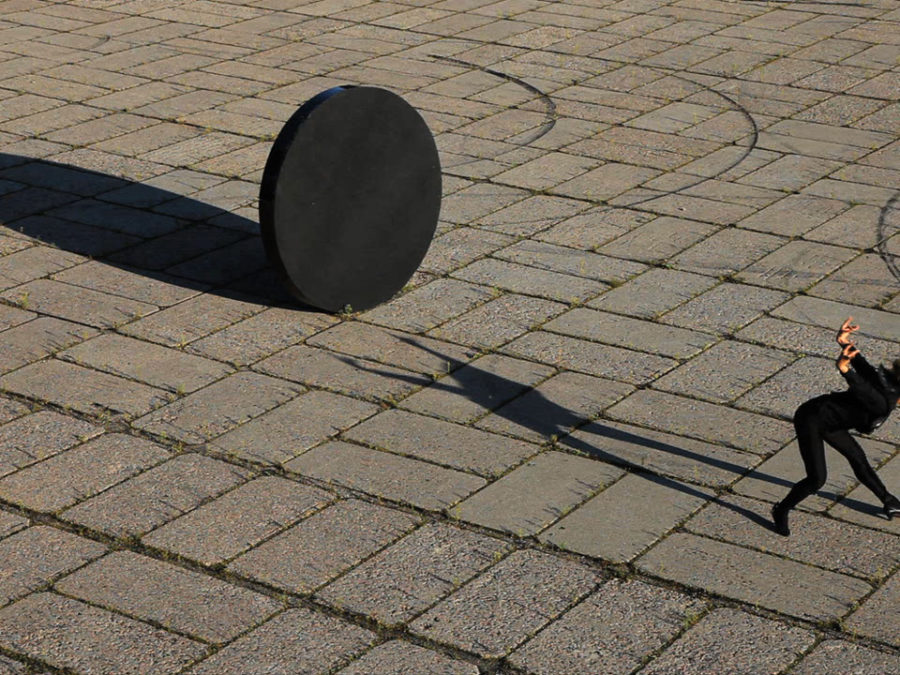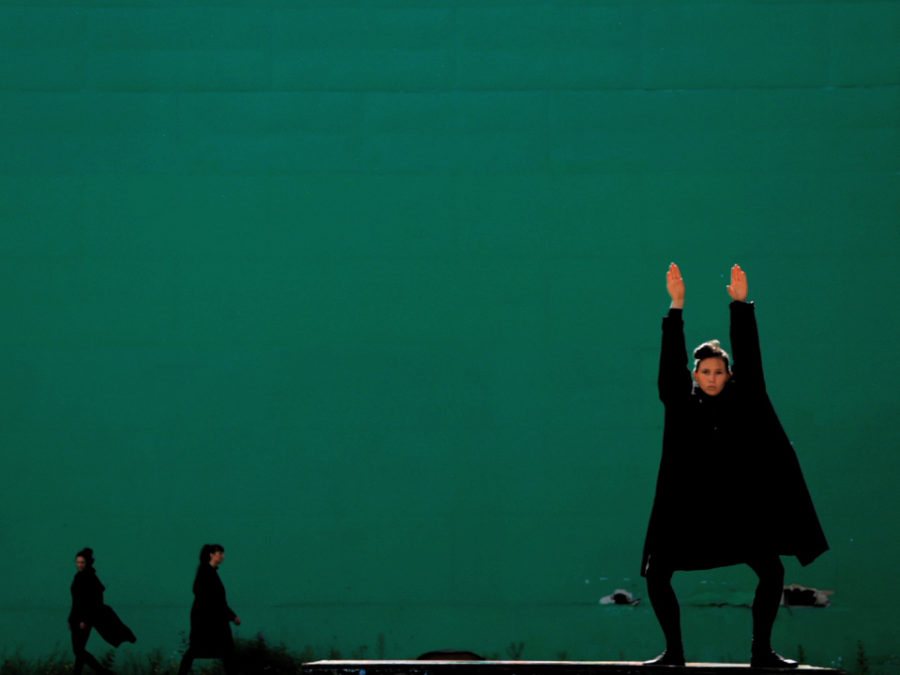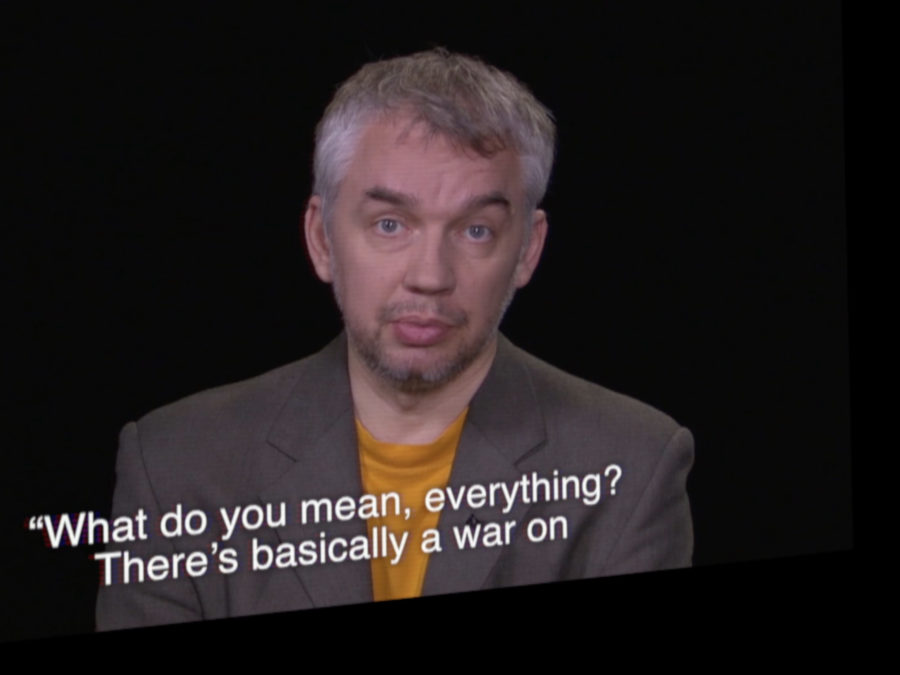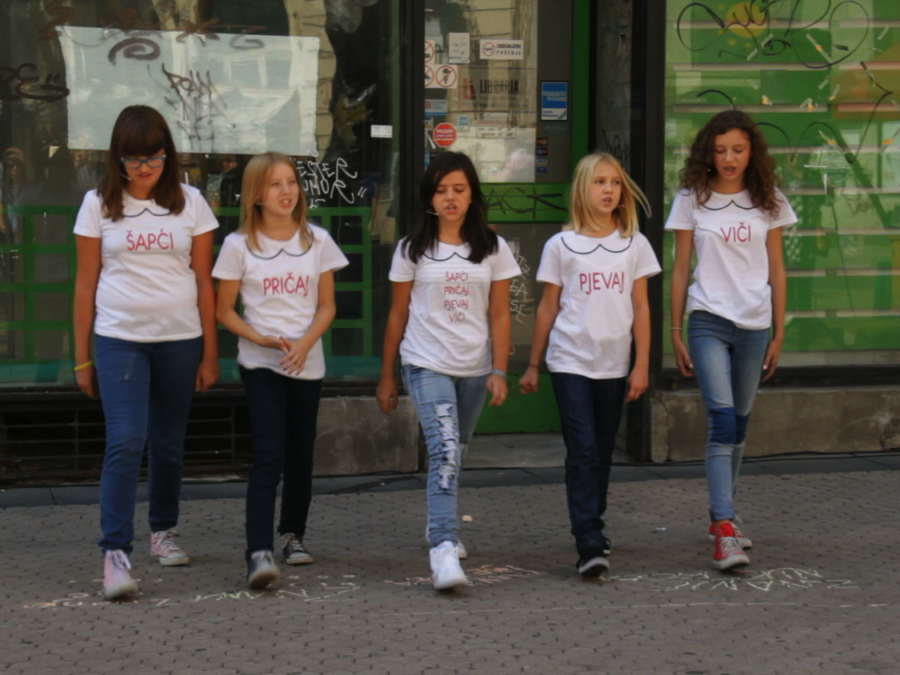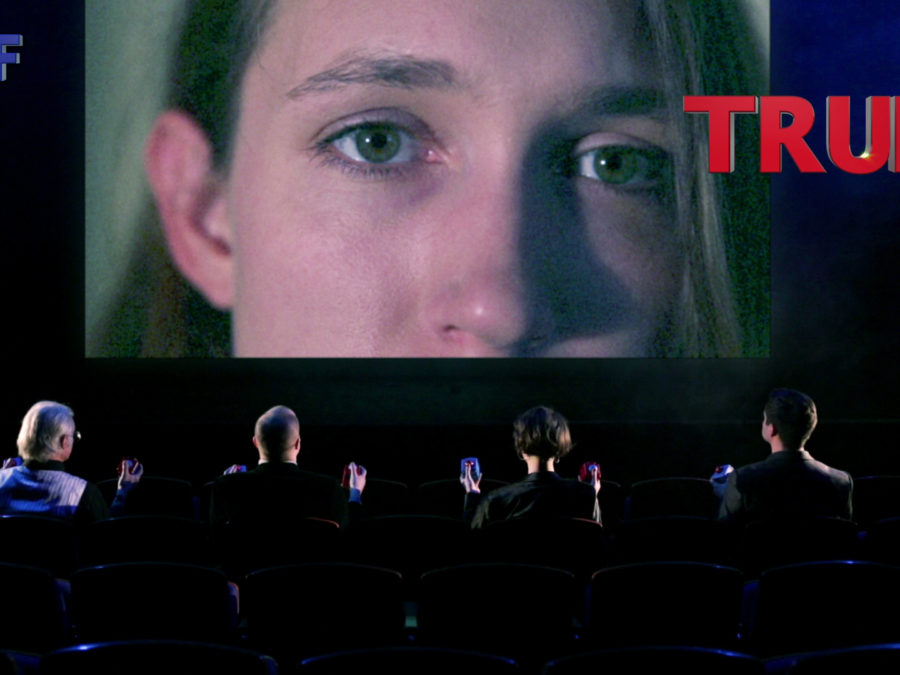The work, conceived as a video performance, is a critical view of current modes of political education in Russia. The lesson we see unfolds like an absurd play where the pupils, mindful of the rules of the game set by the director, studiously perform a series of elementary tasks: they answer questions relating to pictures shown by their teacher. They respond with associations to these, in the form of adjectives, subjects, adverbs, and proper nouns. As the lesson goes on, one realizes that the class has absorbed only too well the cultural codes and symbols of the national dogma. The game makes obvious the way patriotic codes are instilled in children’s subconscious and strips them of pathos.
The Russian educational system has been a battlefield for more than a decade now. After the collapse of the Soviet Union, for a brief period, a moderately liberal window existed in learning environments and approaches to education. This quickly dissolved by the mid-2000s when ideology and nationalist propaganda began to re-enter schools. The whistle used by ‘teacher’ Polina Kanis reminds us of the rejection of critical thinking in pupils and the militarization assimilated in many schools, where patriotic discourse thrives.
Polina Kanis was born in Leningrad and graduated from the Rodchenko Art School, Moscow, in 2011. The same year she was awarded the Kandinsky Prize in the category Best Young Artist for her video Eggs (2010). In 2016 Kanis received the Sergey Kuryokhin Award in the category Media Object for her film The Pool (2015). Her work has been featured in numerous solo and group exhibitions, including a solo show in Haus der Kunst, the parallel program to Manifesta 10, and the 2015 edition of the Ural Industrial Biennial of Contemporary Art. In January 2017 Kanis joined the residency program at the Rijksakademie van beeldende kunsten in Amsterdam.
